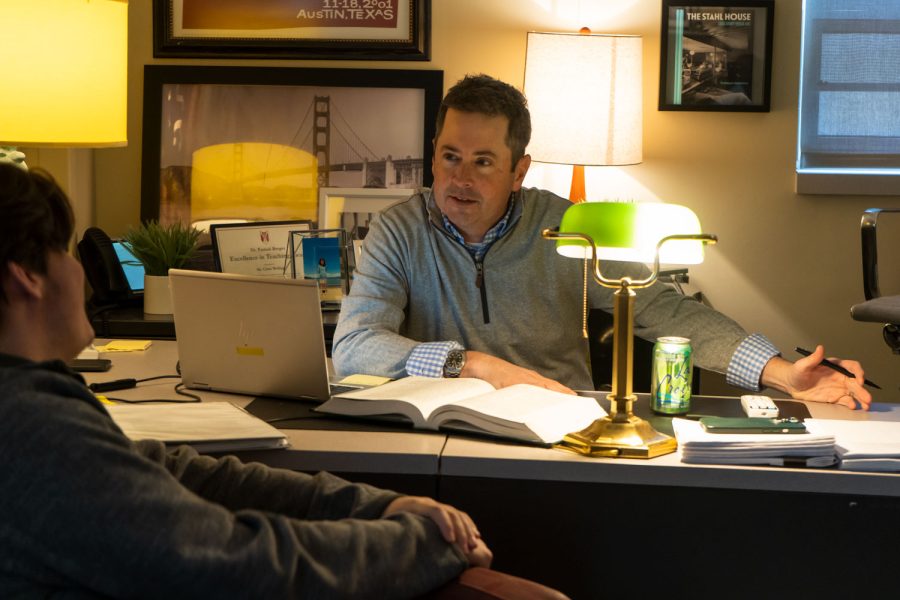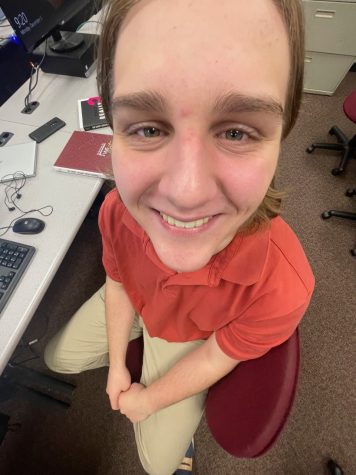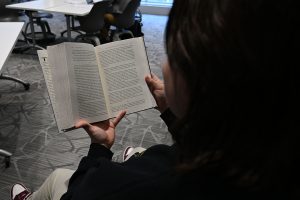Better Call Welling
Mr. Welling meets with Ian Strahlendorf ’23 to discuss a topic in the new law class at De Smet.
November 29, 2022
He made choices that landed him in court. He had to present his story and watch it be attacked, picked apart, every minute detail scrutinized publicly by a lawyer. He was innocent, but the opposition fought him tooth and nail to convince the judge to call his story false.
Foundations in Law and Justice teacher Chris Welling used to go through this all the time while he worked as a lawyer, and now applies that knowledge to his new one-semester class.
Entering college, Mr. Welling had planned on becoming a lawyer.
“I thoroughly enjoyed being an attorney, I had a passion for it, a talent for it, but it’s a highly adversarial environment,” Mr. Welling said. “It doesn’t support collegiality, it doesn’t support community, it creates stress and tension.”
After being a lawyer in civil court for a year, he was offered a role as a lecturer, his first experience with teaching, for a two-year course while still working as a lawyer.
“I had never felt more ‘at home’ or ‘in-my-element’ than in those two years of teaching,” Mr. Welling said. “I got substantially more joy in teaching that subject than practicing it. I don’t spend time missing the practice because I’m spending so much time truly enjoying what I’m doing in the present.”
This year, Mr. Welling has started teaching a unique class structured as an open, minimally regulated conversation or debate focused on hypothetical legal cases including, but not limited to, a man setting fire to several people that his neighbor hired to be living scarecrows a la Salem Witch Trials.
“It’s very different from any other class at De Smet,” senior John Day said. “Sometimes [Mr. Welling] will leave the door open and people walk past and be like ‘what are you guys talking about?’”
Learning about law doesn’t just teach you about what the judicial system thinks about criminal and ethical dilemmas, they completely change the way you think.
“The way I speak, the way I formulate thoughts is through a completely different lens than I would have in 1996,” Mr. Welling said. “It’s a more extensive lens, It’s a more analytical, critical, and creative lens.”
Mr. Welling sees this class as a success and plans to teach it again next year.
“It’s one of my favorite classes,” Day said. “I think it’s a great class, and I think it should be a full year class.”








